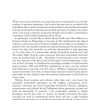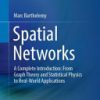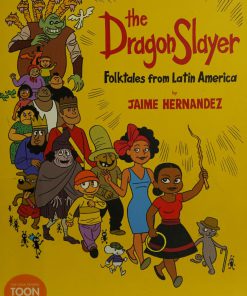Routledge Handbook of Latin America and the Environment 1st Edition by Beatriz Bustos, Salvatore Engel Di Mauro, Gustavo Garcia Lopez, Felipe Milanez, Diana Ojeda 0367361868 9780367361860
$50.00 Original price was: $50.00.$25.00Current price is: $25.00.
Routledge Handbook of Latin America and the Environment 1st Edition by Beatriz Bustos, Salvatore Engel Di Mauro, Gustavo Garcia Lopez, Felipe Milanez, Diana Ojeda – Ebook PDF Instant Download/Delivery: 0367361868, 9780367361860
Full download Routledge Handbook of Latin America and the Environment 1st Edition after payment

Product details:
ISBN 10: 0367361868
ISBN 13: 9780367361860
Author: Beatriz Bustos, Salvatore Engel Di Mauro, Gustavo García-López, Felipe Milanez, Diana Ojeda
The Routledge Handbook of Latin America and the Environment provides an in-depth and accessible analysis and theorization of environmental issues in the region. It will help readers make connections between Latin American and other regions’ perspectives, experiences, and environmental concerns. Latin America has seen an acceleration of environmental degradation due to the expansion of resource extraction and urban areas. This Handbook addresses Latin America not only as an object of study, but also as a region with a long and profound history of critical thinking on these themes. Furthermore, the Handbook departs from most treatments on the topic by studying the environment as a social issue inextricably linked to politics, economy, and culture. The Handbook will be an invaluable resource for those wanting not only to understand the issues, but also to engage with ideas about environmental politics and social-ecological transformation. The Handbook covers a broad range of topics organized according to three areas: physical geography, ecology, and crucial environmental problems of the region. These are key theoretical and methodological issues used to understand Latin America’s ecosocial contexts, and institutional and grassroots practices related to more just and ecologically sustainable worlds. The Handbook will set a research agenda for the near future and provide comprehensive research on most subregions relative to environmental transformations, challenges, struggles and political processes. It stands as a fresh and much needed state of the art introduction for researchers, scholars, post-graduates and academic audiences on Latin American contributions to theorization, empirical research and environmental practices.
Routledge Handbook of Latin America and the Environment 1st Table of contents:
Part I Introduction
1 Suturing the open veins of Latin America, building epistemic bridges: Latin American environmentalism for the 21st century
Rationale and outline of the volume
Part II Biophysical processes and environmental histories
2 Latin American ecosystems vulnerability
Biodiversity and climate change
Modeling species and ecosystems distributions
Climate change impacts on biodiversity
Climate change ecosystem vulnerability
Latin American and Caribbean ecosystems
Climate change vulnerability assessments of Latin American and Caribbean ecosystems
References
3 Soil degradation and land cover change in Latin America
Introduction
Soils in Latin America
Land-cover change tendencies in Latin America
A future for land and people
Conclusions
Acknowledgments
References
4 Climate change impacts on Caribbean coastal ecosystems: Emergent ecological and environmental geography challenges
Climate change impacts in the Anthropocene
Threats of climate change to Caribbean coastal and marine ecosystems
Seagrasses
Coral reefs
Conclusions and regional strategies for climate change adaptation
Capacity building and technology transfer
Partnerships and financing
Access to information, data, and knowledge
Communications and awareness raising
Public health, post-natural disaster, and post-COVID-19 recovery
The community-based management alternative
Acknowledgments
References
5 An environmental history of the “second conquest”: Agricultural export boom and landscape-making in Latin America, ca.1850–1930
Notes
References
6 Extractivism: The port-a-cathed veins of Guatemala
Introduction
Land/labor
Debt
Strategies of resistance
Port-a-cath veins
References
7 Environmental colonialism and neocolonialism in Latin America
Introduction
An ontological break: Conquest, colonialism and the environment in Latin America
Independence and the era of environmental neo-colonialism
From dependent development to the commodities consensus
New frontiers of environmental colonialism
The pervasive logic of environmental colonialism
Resistance and change
Conclusion
Notes
References
8 Water scarcity in Latin America
Introduction
Scarcity in theory
Physical water availability in the Latin American region: the geographic distribution of climatic and hydrologic conditions
From physical to social: the study and construction of water scarcity in Latin America
Construction of urban water scarcity: São Paulo, Brazil
Producing water scarcity in Latin American oases: Mendoza, Argentina
Qualitative water scarcity: Uruguay
Producing scarcity by producing water: desalination in the Antofagasta desert, Chile
Constructing discursive water scarcity and abundance: Ica Valley, Peru
Conclusions
Note
References
Part III Latin American environmental issues in political-economic context
9 The political economy of the environment in Latin America
Introduction
The crisis of resource extractivism
A brief history of extractivism
Environmental futures
Notes
References
10 Ecological debt and extractivism
Introduction
Origin, definition, and application of the concept
Ecological debt, foreign debt and extractivism
The “cursed gifts” of extractivism
The Southern Peoples’ Ecological Debt Creditors Alliance (Apsade)
To conclude
Notes
References
11 Trajectories of adaptation to climate change in Latin American cities: Climate justice blind spots
Introduction
Capitalist urbanization, socio-environmental inequality and climate justice
Towards a denaturalization of approaches to climate change adaptation
Toward a re-politicization of the concept: the analysis of adaptation trajectories
Climate change adaptation programs in Latin American cities
The challenges of adaptation policies in the Metropolitan Region of Buenos Aires (Argentina)
Conclusions
Notes
References
12 Environmental disasters and critical politics
Introduction
The right to remain
Colonialism and the state in question
Disastrous infrastructure and environmental justice
Conclusions
Notes
References
13 Latin America in the chemical vortex of agrarian capitalism,
Introduction
Commodity booms and the dynamics of sociometabolic circuits
Modern agriculture and the chemical gaze
Industrialization, protectionism, and substitution: rubber
Evolving metabolic pathways in the post-war era: soybeans
The age of chemical versatility: flex crops
Nutritionism and superfoods
Latin America in the global pesticide complex
A brief history of synthetic pesticides
From the circle of poison to the global pesticides complex
Tracking the pesticide treadmill
Conclusions
References
14 Resource radicalisms
Introduction
Resource radicalisms
Conclusion
Notes
References
15 The fruits of labor or the fruits of nature?: Toward a political ecology of labor in Central America
Introduction
Labor and dependency theory
Toward a political ecology of work
Dead labor and the question of value
Conclusions
Notes
References
16 Transnationals, dependent development and the environment in Latin America in the 21st century
Introduction
Theoretical debates and challenges
Dependency theory
Ecologically unequal exchange
Reprimarization and the environment in Latin America
Deforestation of the Amazon rainforest
Agroindustry, soy, pesticides, and GMOs
Environmental impacts of mining
Final considerations
Notes
References
17 Challenging the logic of “the open veins”?: The geography of resource rents distribution in Peru and Bolivia
Introduction
The geography of resource rents distribution in Peru and Bolivia
Challenging the logic of the open veins?
Concrete, steel and resource dependency
Uneven development
Conclusions
Notes
References
Part IV Environmental struggles and resistance
18 Resistance of women from “sacrifice zones” to extractivism in Chile: A framework for rethinking a feminist political ecology
Introduction
The hidden face of Latin American neo-extractivism: the sacrifice zones
Eruption of a territorial and feminized political ecology in Chile
In closing
Notes
References
19 Environmental conflicts and violence in Latin America: Experiences from Peru
Introduction
Changes in social metabolism and environmental conflicts
The Peruvian social metabolism
The extraction
The conflicts
The violence
Racism, coloniality, and violence
Conclusion
Notes
References
20 Quilombos and the fight against racism in the context of the COVID-19 pandemic
Brazilian diversity and inequality in pandemic times
Quilombola territories and identity
Concluding remarks
Notes
References
21 The “Greening” by Sustainable Development: Stretching Biopiracy
Introduction
The Commons Perspectives: World Bank vs Ecofeminism
Forestry Concessions for wood production
Land Change Use—The case of cacao production
Land expropriation has disrupted
Culture of subsistence but expanded corruption
Forest Finance Capitalism—Carbon Stock: The Norway–Germany REDD+
The reproductive labor of nature is used as a resource
The reproductive labor of Indigenous People is devalued
The reproductive labor of nature and Indigenous People drops to dependence
The reproductive labor of nature and Indigenous people is reduced to deviance
Conclusion
References
22 Territorialization through the Milpa: Zapatismo and Indigenous autonomy
Introduction
Zapatista Mayan reterritorializing struggles against colonial structures of power
Re/territorialization through the milpa
The challenges of establishing claims through legal means
Final critical reflections in the support of territorial claims
Notes
References
23 Indigenous autonomies as alternative horizons in Latin America: Societal movements and other territorialities in Bolivia and Mexico
Introduction
Self-determination and Indigenous autonomy
The autonomy of Guaraní people in Bolivia: between subordination and self-determination
The rebel Zapatista Indigenous autonomy in Chiapas: the construction of self-government from below and without permission from the state
Territorialities in dispute, autonomous and counterhegemonic re-existences
Conclusion
Note
References
24 Land occupations and land reform in Brazil
Occupations, landless encampments, and agrarian reform movements
The conditions for the possibility of agrarian reform settlements
Conclusions
Notes
References
25 From Chico Mendes to Berta Cáceres: Responses to the murders of environmental defenders
Introduction
The legacy of Chico Mendes
The seeds of Berta Cáceres
Situating responses to environmental defender killings
Conclusions
Acknowledgments
Notes
References
Part V Environmental disputes and policies
26 Latin America’s approach in the international environmental debate: Between “eco-development” and “sustainable development”
Introduction
Stockholm 72: Latin America and the first North–South confrontation in the environmental debate
Environment and development—a single issue for Latin Americans
The ecodevelopment concept
From Sustainable Development to Rio 92
The Rio 92 Environmental Summit
From Rio 92 to Rio + 20, from illusion to disappointment
The climate change example: The Ecuadorian case of Yasuni ITT
Notes
References
27 Degrowth and Buen Vivir: Perspectives for a great transformation
Introduction
Central elements of the Degrowth perspective
Buen Vivir, an alternative to development
As a prologue to a permanent transformation
Notes
References
28 Social cartographies in Latin America
Introduction
Social cartographies in Latin America
Cartographies’ becoming through difference
The myriad landscapes of social cartographies
Final thoughts
Note
References
29 Rights of nature in the courts of Latin America: Moving forward to better protect our environment?
Nature as a subject of law in Latin American constitutions
The creation of special courts and tribunals as a guarantee of access to environmental justice
The cases of Costa Rica and Chile
Costa Rica
Chile
Effectiveness of environmental protection
Conclusions
Notes
References
30 How can tenure reform processes lead to community-based resource management?: Experiences from Latin America
Introduction
Tenure reforms in Latin America: implications over natural resources governance
Guatemala: Community Forest Concessions (CFC)
Peru: Indigenous native community titling
Discussion
Intersection between the recognition for rights and the ability to realize rights and benefit from reform processes
Emergence of community-based organizations: making up new political subjects
Ongoing governance challenges
Concluding remarks
Notes
References
31 Environmental policy and institutional change: The consequences of mobilization
Introduction
Theoretical considerations
Institutions and policy change in Chile
Mining policy in Central America
Prior consultation and policy change in Bolivia and Ecuador
Policy implementation and rollback in Brazil
Concluding remarks
Notes
References
Part VI Toward oppression-free futures
32 Feminist thought and environmental defense in Latin America
Introduction
Critiques of hegemonic productions of nature
The defense of the body-territory
The production of the commons in common
Conclusions
Notes
References
33 Decolonizing time through communalizing spatial practices
Introduction. From commodities to the common
Axial premises
Resisting the subalternization of the region
Defending the relational character of territories
Repoliticizing the reproduction of life
Recentering use value
The potential of Latin-American movements to expand post-developmentalist agendas
Notes
References
34 Environmental thought in movement: Territory, ecologisms, and liberation in Latin America
Introduction
Eco-theology of liberation
The territorial turn, autonomies, and nature
Popular ecologisms
Latin American eco-feminisms
Conclusions
References
35 Agroecology and food sovereignty in the Caribbean: Insights from Cuba, Puerto Rico, and Sint Maarten
Introduction
Caribbean food systems in context
Historical disadvantages
Sunny side up?
Famer-to-farmer agroecology movement in Cuba
Re-peasantization dynamics in Puerto Rico
Reclaiming healthy diets in Sint Maarten/Saint Martin
Going forward
Agroecology-based farm design principles
Social and political values of food sovereignty
References
36 Re-existence struggles and socio-ecological alternatives for reproduction of dignified and sustainable life in territories affected by the extractivist offensive in Latin America
Introduction
Extractivist offensive and violent appropriation of nature
Survival re-existence struggles
The reconstitution of a politics centered on the care of life
Emergence of an ecological and interdependent sensibility
The strength of women: the emotional and affective work of re-existence
The prefiguration of anti-capitalist horizons
Conclusions
Notes
References
37 The dimensions of life: Environment, subject, and the wild thought
Epistemology and the savage life
The gift of life
Us and the plants
Conclusion
References
38 Environmental justice movements as movements for life and decolonization: Experiences from Puerto Rico
Introduction: Confronting the death politics of colonial-capitalism
Resisting toxic military-industrial projects and fossil fuel colonialism
Defending public lands and beaches against urbanization enclosures
Environmental sovereignty and just transition initiatives as decolonial life alternatives to the disasters of colonial-capitalism
Conclusions: connecting EJ struggles across the Caribbean and Latin American geographies
Acknowledgments
Notes
References
39 Community contributions to a Just Energy Transition
An energy model to be transformed
Outlines for a “just” energy transition
Changing the energy model, not just the way energy is produced
Energy for what, for whom and at what cost?
Energy as a human right and the common good
Democratize energy and universalize its access
Nationalization of companies in the energy sector energy sector
Justice for working men and women
Stop the violation of human rights
Cultural transformation
Social or fair energy tariffs
Conflicting discussions for the integration of proposals
Community energy for a just transition
Principles of community energies
Community training school
Community energy dates for a just transition
Concluding remarks
People also search for Routledge Handbook of Latin America and the Environment 1st:
the handbook of latin american studies
the garland handbook of latin american music
the garland handbook of latin american music pdf
routledge latin
Tags:
Beatriz Bustos,Salvatore Engel Di Mauro,Gustavo Garcia Lopez,Routledge,Handbook
You may also like…
Housekeeping & Leisure - Games: Chess
Uncategorized
Uncategorized
Science (General) - Theories of Science
Languages - English as a Foreign Language & Reference
English Grammar Exercises with answers Part 4 Your quest towards C2 1st Edition Daniel B. Smith
Housekeeping & Leisure - Games: Chess
History - Military History











